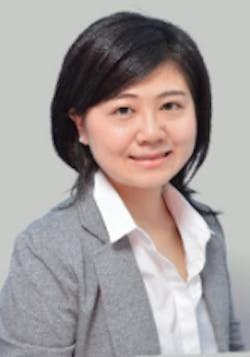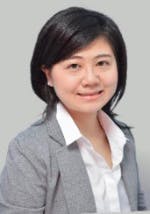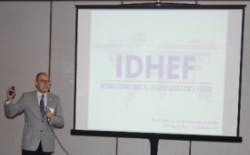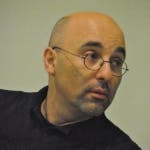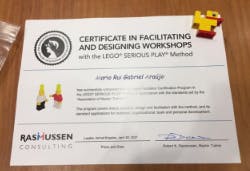International educators: Zooming in on dental hygiene education
By Maria Perno Goldie, RDH, MS
The Third International Dental Hygiene Educator’s Forum was held March 17 in Long Beach, California, prior to the American Dental Education Association (ADEA) meeting. The meeting was created by Sylvia Fresmann, DH, and Maria Perno Goldie, RDH, MS. It was a huge success with over 65 participants, speakers, and sponsors from the U.S., Canada, Portugal, Australia, Germany, and Japan.
This is the second in a series about the International Dental Hygiene Educator’s Forum (IDHEF). This article will focus on those speakers residing outside the USA. To see the first article, click here.
Teleconferencing
Akane will finish her master’s program and start a doctoral program in 2017. Possibility of Web-Conferencing Being Introduced in Dental Hygiene Education was the title of her presentation. Japanese, Korean, Portuguese, and Finnish dental hygienists have been conducting web-conferencing every month to share their dental hygiene research and education since 2015. Students participate in this web-conferencing as part of English-speaking classes. Thus, this project was conducted to identify the effectiveness of listening to non-native English speakers’ presentations to improve the language skills of English as a foreign language dental hygiene students. Her presentation described the project and results of a previous survey related to dental hygiene global education.
A survey conducted showed that Japanese students showed a high interest in global education. The results also showed that English classes should be improved and provide more opportunities to use the English language. The hypothesis is that web-conferencing may be effective for global education. For the web-conferencing, there are pre- and post-examinations on dental terminology and speaking skills. It has proved to be a successful modality and the studies are ongoing.
Critical thinking skills
He supported the development of dental hygiene education in Nepal (curriculum advisor and providing didactical and technical training) and managed an oral health promotion training center in Nepal.
In 2013, he was the recipient of the prestigious Andrew Heiskell Award, for innovation in international education. In 2015, he received recognition for his work in Nepal through a Social Responsibility Award from the IFDH and the Global Child Dental Fund. He is currently finalizing this PhD investigating factors that impact oral health workforce planning in developing countries, with Nepal as a case study.
Ron’s presentation was titled, An Innovative Strategy For (Pre-) Clinical Competency Assessment in Oral Health Using PebblePad. It was about a new program that supports students to develop ongoing reflective practice to maintain professional competence and support certification of competence.
The workbooks developed in PebblePad stimulate goal setting for improvement of clinical and critical thinking skills. A key feature of the teaching program is to provide useful feedback for students and teaching staff. This entails developing a 360-degree feedback framework, which includes peer review, student feedback, clinical educator feedback, placement agency feedback, and patient feedback.
Analysis of student feedback data facilitates benchmarking of students, real time monitoring of progression in clinic, and informs the teaching program to best support weaker students. Analysis of feedback data from clinical educators allow them to compare and calibrate the teaching to be more consistent for students. The plan to analyze the rich data sets collected to inform future teaching programs and support a better student learning experience.
Oral care instruction
His passion for improving dental hygiene education began in 1990 as a teacher at Lisbon Dental Hygiene School. Later, he became the Director of Alto Ave Dental Hygiene Programme in Póvoa do Lanhoso where he also served as the director of academic affairs for the entire school. In addition to his education experience, Mario worked for the Portuguese government as project manager in the Portuguese Oral Health Promotion Program. In 2013, he was the recipient of the prestigious Sunstar World Dental Hygiene Award in Cape Town, South Africa, during the IFDH conference for the best oral health project.
Mario is also an expert in facilitating and designing workshops with the LEGO Serious Play Method, and he is very excited with is new idea about using LSP as an alternative way to teach dental topic.
As you can see, we had a forum rich in content offered a global perspective. We are investigating venues for the 4th IDHEF!
